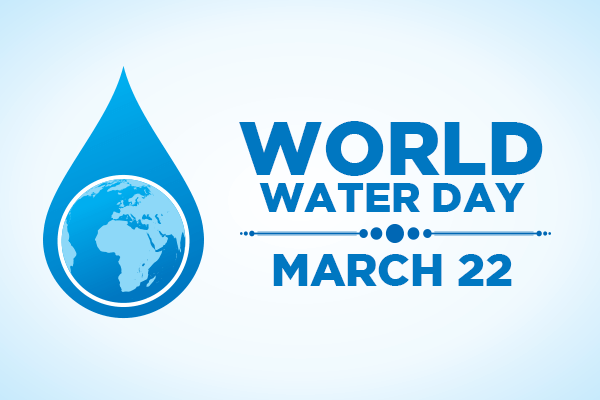
World Water Day 2017
World Water Day
World Water Day takes place on 22nd March every year. It is held to take action and tackle the worlds water crisis, with a target to make sure everyone on the planet has access to safe water by 2030. This year’s World Water Day theme is ‘Why waste water?’ and is focused around reducing and reusing waste water.
Shocking facts about waste water
- Today, 1.8 billion people use a source of drinking water contaminated with faeces, putting them at risk of contracting cholera, dysentery, typhoid and polio.
- Over 80% of wastewater produced is pumped back in the ecosystem without being treated or reused.
- It is believed that unsafe water and poor sanitation kills 842,000 people every year
- Water, sanitation and hygiene could prevent 9.1% of the global disease burden – and an estimated 6.3% of all deaths.
- According to the USGS, the average person uses up to 100 gallons of water per day. 95% of this goes down the drain – meaning each person wastes between 76-95 gallons every day.
- Despite most of the planet being covered by water, most of it is not available for human use. If the Earth’s water fitted into a four litre jug, just one tablespoon would be available freshwater.
One of the targets set out in the Sustainable Development goals is to “improve water quality by reducing pollution, eliminating dumping and minimising release of hazardous chemicals and materials, halving the proportion of untreated wastewater and substantially increasing recycling and safe reuse globally”.
Because of population growth, the amount of wastewater being generated has dramatically increased, so how can you help reduce waste water?
The UN suggests taking the following steps;
- Turn off the tap while you’re brushing your teeth
- Turn off the tap while washing up or scrubbing vegetables.
- Put rubbish, oils, chemicals and food in the bin, not down the drain. The dirtier your wastewater, the more energy and money it costs to treat it.
- Collect used water from your kitchen sink or bath and use it to water your plants
- You can also collect and use this water to wash your bike or car.
Instead of wasting wastewater, we need to reduce and reuse it. In our homes, we can reuse greywater on our gardens and plots. Through these small changes we can help reduce the proportion of untreated wastewater and increase water recycling and sage reuse.
